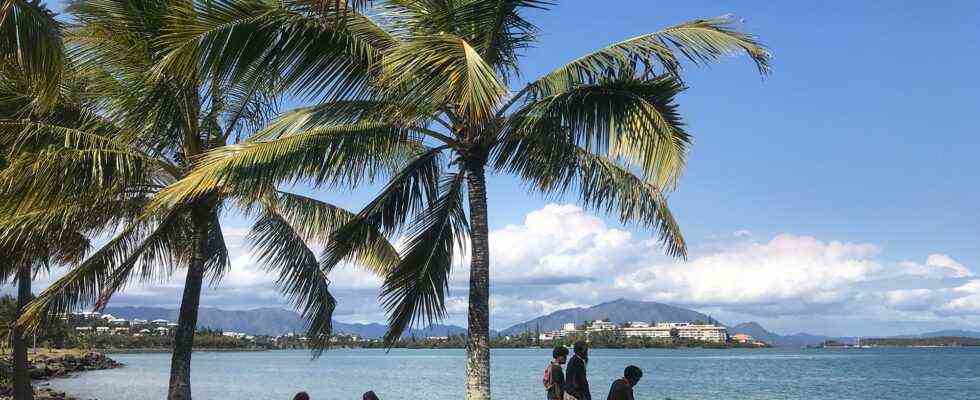Status: 12/12/2021 2:16 p.m.
In the third and, for the time being, last referendum, New Caledonia voted to remain with France. The 96.5 percent approval, however, has one major flaw – supporters of independence had called for a boycott.
In a referendum, the residents of the French overseas territory New Caledonia decided to stay with France. With an overwhelming majority of 96.5 percent, the citizens of the archipelago in the South Pacific voted in favor. 3.5 percent voted in favor of a spin-off. About 185,000 people were eligible to vote.
However, voter turnout was low – according to official figures, it was 43.9 percent. The majority of the island’s indigenous people, who call themselves Kanak and their island La Kanaky, want independence from France. You had called for a boycott of the referendum.
In view of the corona pandemic, no “fair election campaign” was possible, they argued. The fact that the referendum was held anyway was described by the largest independence movement, the FLNKS, as a “declaration of war”. The AFP news agency reports that voter turnout was low, especially in areas with a particularly high number of indigenous people.
How important is money from Paris?
The majority of the mostly wealthy white population traditionally advocate staying with France. The loyalists – white immigrants or descendants of the colonizers called Caldoches – argue that New Caledonia would collapse without financial help from Paris. The grants from France make up around 15 percent of the gross domestic product.
Up to three referenda are possible
Now there are concerns about ethnic tensions, like in the 1980s, between the indigenous peoples and the Caldoches. More than 70 people were killed at the time. In response, the Nouméa Agreement was signed, which provides for a decentralization of power and up to three independence referenda by 2022.
Even before the vote, the independence movement had threatened not to recognize the result of the vote and to want the United Nations to cancel it.
In 2018 and 2020, the New Caledonians had already spoken out against a split in two referendums. In 2018, more than 56 percent of voters voted against a split, and in the second referendum in October 2020 around 53 percent voted against independence. The participation at that time was more than 80 percent.
Part of France since 1853
Nouvelle-Calédonie – literally translated: Nova Scotia – was taken over by Paris in 1853 and initially used as a convict island. The archipelago 2000 kilometers east of Australia is still of geostrategic importance for Paris. There is an armed forces base in New Caledonia.
In addition, the archipelago has extremely rich deposits of nickel, the metal that is essential for the manufacture of cell phones and flat screens, for example.
With information from Julia Borutta, ARD-Studio Paris

